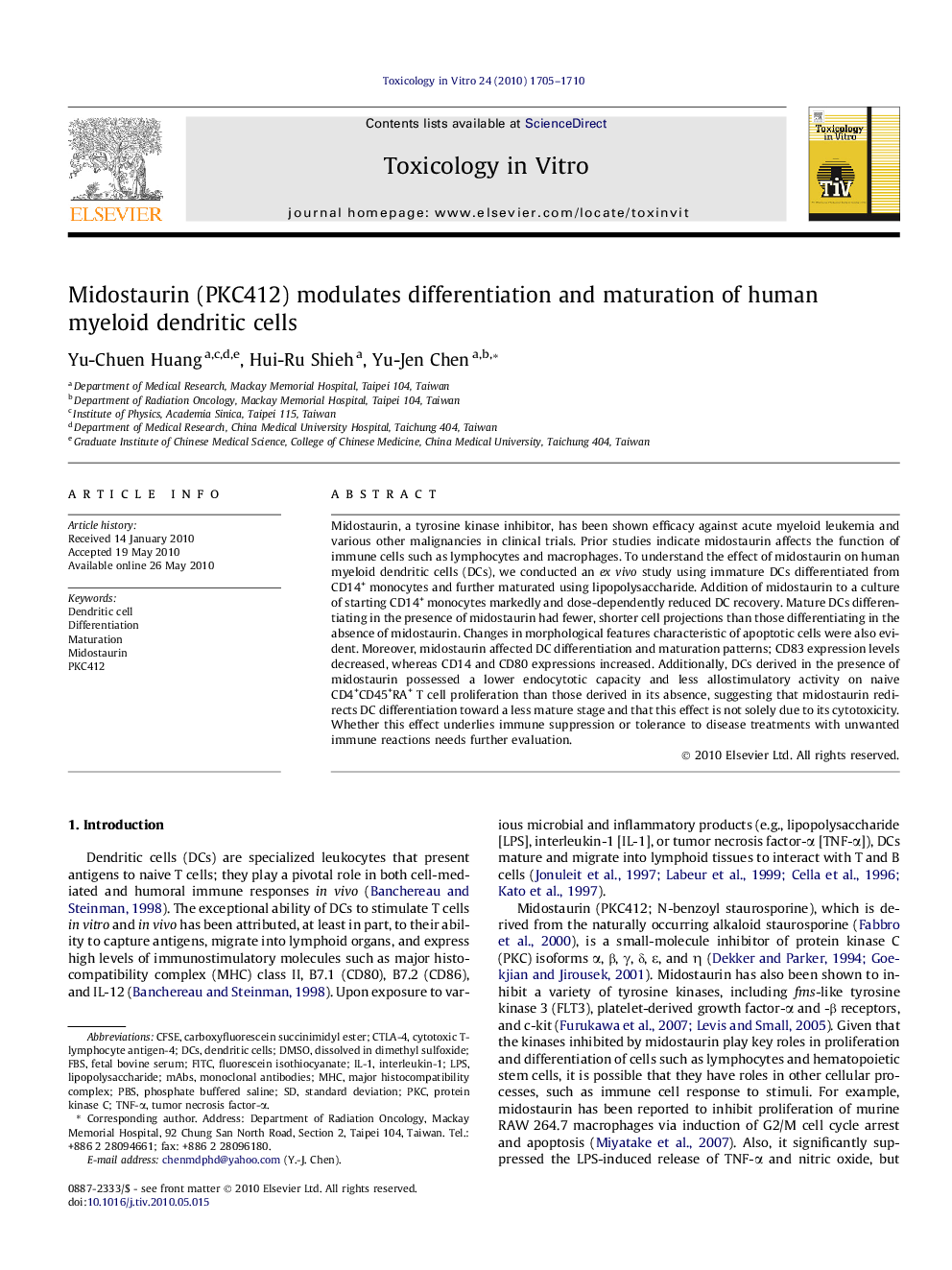| Article ID | Journal | Published Year | Pages | File Type |
|---|---|---|---|---|
| 2603215 | Toxicology in Vitro | 2010 | 6 Pages |
Midostaurin, a tyrosine kinase inhibitor, has been shown efficacy against acute myeloid leukemia and various other malignancies in clinical trials. Prior studies indicate midostaurin affects the function of immune cells such as lymphocytes and macrophages. To understand the effect of midostaurin on human myeloid dendritic cells (DCs), we conducted an ex vivo study using immature DCs differentiated from CD14+ monocytes and further maturated using lipopolysaccharide. Addition of midostaurin to a culture of starting CD14+ monocytes markedly and dose-dependently reduced DC recovery. Mature DCs differentiating in the presence of midostaurin had fewer, shorter cell projections than those differentiating in the absence of midostaurin. Changes in morphological features characteristic of apoptotic cells were also evident. Moreover, midostaurin affected DC differentiation and maturation patterns; CD83 expression levels decreased, whereas CD14 and CD80 expressions increased. Additionally, DCs derived in the presence of midostaurin possessed a lower endocytotic capacity and less allostimulatory activity on naive CD4+CD45+RA+ T cell proliferation than those derived in its absence, suggesting that midostaurin redirects DC differentiation toward a less mature stage and that this effect is not solely due to its cytotoxicity. Whether this effect underlies immune suppression or tolerance to disease treatments with unwanted immune reactions needs further evaluation.
